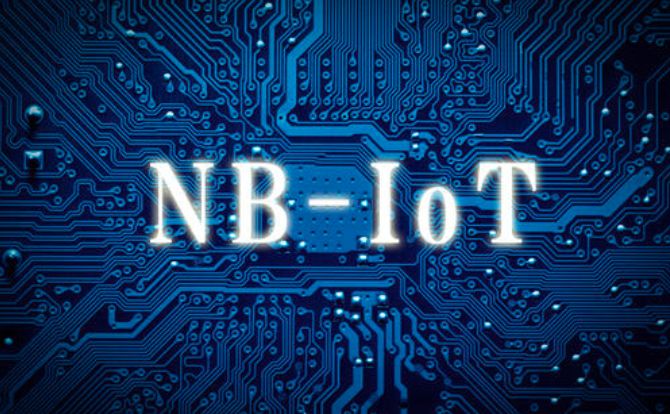

— Blogs —
—Products—
 Consumer hotline +8618073152920
Consumer hotline +8618073152920 WhatsApp:+8615367865107
Address:Room 102, District D, Houhu Industrial Park, Yuelu District, Changsha City, Hunan Province, China
Product knowledge
Time:2022-03-13 10:03:47 Popularity:1224
There are many wireless communication technologies in the Internet of Things, which are mainly divided into two categories: one is short-range communication technologies such as Zigbee, WiFi, Bluetooth, and Z-wave; the other is LPWAN (low-powerWide-AreaNetwork, low-power wide-area network), That is, wide area network communication technology. LPWA can be divided into two categories: one is LoRa, SigFox and other technologies working in unlicensed spectrum; the other is 2/3/4G cellular communication technologies supported by 3GPP, such as EC-GSM, LTE Cat-m, NB-IoT, etc.
NB-IoT refers to NarrowBand-Internet of Things technology. Focusing on the Low Power Wide Coverage (LPWA) Internet of Things (IoT) market, NB-IOT is an emerging technology that can be widely used around the world. NB-IOT uses the license frequency band, and can be deployed in three ways: in-band, guard band, or independent carrier to coexist with the existing network.

NB-IoT is an emerging Internet of Things technology. It has attracted much attention because of its low power consumption, stable connection, low cost, and excellent architecture optimization. Huawei, as a domestic leader in the research and development of NB-IoT technology, has also attracted much attention from the scientific and technological circles.
NB-IoT application scenarios:
Does the Agricultural Internet of Things support NB-IoT?
The agricultural Internet of Things usually adopts M2M, Zigbee, 433MHz, WiFi, wired, etc. The main problems focus on network coverage, power supply and cost.
The combination of NB-IoT technology and sensors, fully sealed shell, low cost, scattered in fields, underwater, mountains and forests, as long as the network coverage is in place, can assist agricultural production to rise to a new level. For suburban areas and some areas where coverage is in place, NB-IoT can greatly improve high value-added agricultural production and circulation areas such as aquaculture, greenhouses, and flowers.
Does smart manufacturing support NB-IoT?
At present, the wireless signal coverage of many large factories is poor, and the implementation of wired communication is difficult or expensive. To achieve the goal of intelligent manufacturing, it is necessary to ensure that key equipment and instruments are connected to the Internet of Things.
The network coverage capability of NB-IoT, combined with the optical fiber network and broadband network in the factory area, creates a simple and effective network coverage capability, which is the basis for realizing intelligent manufacturing.
Does the trash can support NB-IoT?
Trash cans are characterized by a large number, wide distribution, poor environment, and difficult classification and implementation. Zhejiang is piloting the application of smart trash cans, and Singapore and some European cities have adopted NB-IoT technology to deploy trash cans. Most of the starting points are to monitor the fullness of the trash can and assist in guiding the driving route of the garbage truck to save the number of drivers and the fuel consumption of the vehicle.
At present, some foreign countries use NB-IoT to realize automatic management of trash cans due to factors such as long routes and expensive labor. But it is more difficult to implement domestically.
Do fire hydrants favor NB-IoT?
At present, in order to reduce the waste rate of fire hydrants from 30% to 10%, the water company has added GPRS communication function to the large hydrant cover of the fire hydrant, which is convenient for platform management of the leakage of fire hydrants. Due to the problems of power consumption, signal coverage and battery life, NB-IoT technology is urgently needed to solve practical problems.
Does smart building support NB-IoT?
NB-IoT technology is more suitable for energy consumption sub-measurement, environmental monitoring, and large-scale fixed asset management of smart buildings. Various meters, air conditioners, lights, alarms, temperature and humidity, environmental parameters, underground space, pipeline corridors, etc., NB-IoT can simplify the complexity of the existing system.
Does the alarm detector support NB-IoT?
Home alarm detectors are usually powered by 9V batteries, most of which are local alarms. The factors that make networked alarms difficult to popularize are the power supply and the installation location. NB-IoT technology can guarantee the working time of the device for more than 5 years, and can remind the sensor to fail or the battery to run out of power, providing a safe and convenient means for families, communities, and tenants.
Prev:NB-IoT application scenarios: smart street lights, smart parking, smart logistics
Next:LoRa low-power wide-area communication technology has been used in all walks of life
Related recommendations
Sensors & Weather Stations Catalog
Agriculture Sensors and Weather Stations Catalog-NiuBoL.pdf
Weather Stations Catalog-NiuBoL.pdf
Related products
 Combined air temperature and relative humidity sensor
Combined air temperature and relative humidity sensor Soil Moisture Temperature sensor for irrigation
Soil Moisture Temperature sensor for irrigation Soil pH sensor RS485 soil Testing instrument soil ph meter for agriculture
Soil pH sensor RS485 soil Testing instrument soil ph meter for agriculture Wind Speed sensor Output Modbus/RS485/Analog/0-5V/4-20mA
Wind Speed sensor Output Modbus/RS485/Analog/0-5V/4-20mA Tipping bucket rain gauge for weather monitoring auto rainfall sensor RS485/Outdoor/stainless steel
Tipping bucket rain gauge for weather monitoring auto rainfall sensor RS485/Outdoor/stainless steel Pyranometer Solar Radiation Sensor 4-20mA/RS485
Pyranometer Solar Radiation Sensor 4-20mA/RS485
Screenshot, WhatsApp to identify the QR code
WhatsApp number:+8615367865107
(Click on WhatsApp to copy and add friends)
